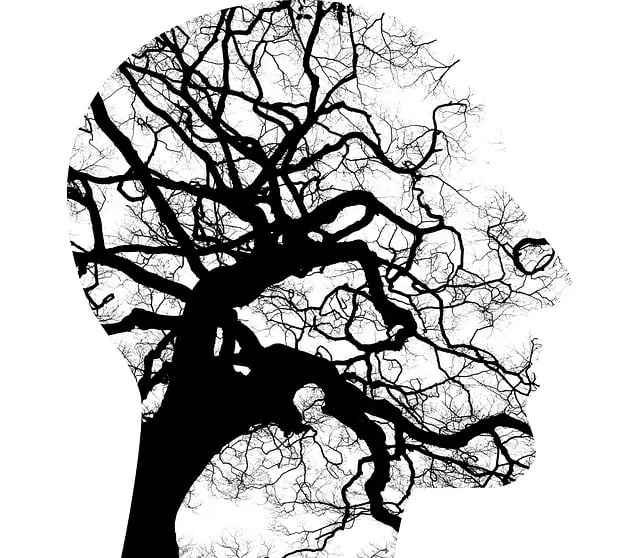The Littleton Kaiser Permanente Mental Health Appointment Center emphasizes cultural competency as a key component of its patient-centric approach, addressing the diverse needs of its community. Through comprehensive staff training in social skills and burnout prevention, the center creates an inclusive environment that respects and embraces patients' cultural diversity. This strategy not only improves emotional well-being promotion but also enhances patient satisfaction and reduces barriers to care, solidifying the center's reputation as a leader in culturally sensitive mental healthcare services for all individuals.
“Cultural competency training is transforming healthcare, especially within institutions like the Littleton Kaiser Permanente Mental Health Appointment Center. This article delves into the vital role of such training in improving patient care and outcomes. We explore why cultural sensitivity is essential for healthcare providers, drawing insights from Kaiser Permanente’s innovative program. Through case studies and expert perspectives, we uncover effective strategies for implementing and evaluating cultural competency initiatives at mental health centers, ensuring equitable and compassionate care.”
- Understanding Cultural Competency in Healthcare: The Littleton Kaiser Permanente Mental Health Appointment Center Perspective
- Why is Cultural Competency Training Essential for Healthcare Providers?
- Implementing and Evaluating Effective Cultural Competency Programs at Kaiser Permanente's Mental Health Appointment Center
Understanding Cultural Competency in Healthcare: The Littleton Kaiser Permanente Mental Health Appointment Center Perspective

Cultural competency is an essential aspect of modern healthcare, especially within diverse communities like those served by the Littleton Kaiser Permanente Mental Health Appointment Center. This center recognizes that effective patient care goes beyond medical expertise; it requires understanding and respecting patients’ cultural backgrounds, beliefs, and values. By fostering cultural competency, healthcare providers can create a more inclusive and supportive environment, enhancing the emotional well-being promotion techniques offered to diverse populations.
The Littleton Kaiser Permanente Mental Health Appointment Center prioritizes training its staff in social skills training and burnout prevention strategies. These initiatives ensure that providers are equipped to handle a wide range of patient needs, including those from various ethnic, cultural, and socioeconomic backgrounds. Through this comprehensive approach, the center aims to reduce potential barriers to care and improve overall patient satisfaction and outcomes, ultimately contributing to the center’s reputation as a leader in culturally competent mental healthcare services.
Why is Cultural Competency Training Essential for Healthcare Providers?

Cultural competency training is essential for healthcare providers to effectively serve a diverse range of patients. In communities like Littleton, where institutions such as the Kaiser Permanente mental health appointment center cater to a varied population, understanding and respecting cultural differences can significantly impact patient outcomes. Healthcare providers who are culturally competent can better navigate sensitive conversations, employ effective communication strategies, and demonstrate emotional intelligence – all crucial elements for building trust and fostering meaningful connections with patients from different backgrounds.
This training goes beyond knowledge of various cultures; it equips providers with self-care practices that prevent burnout, especially in high-stress settings like mental health clinics. By integrating cultural awareness into their daily practice, healthcare professionals can create a more inclusive environment, improve patient satisfaction, and ensure equitable access to quality care for all patients, regardless of their cultural or ethnic identity – a goal closely aligned with the mission of Littleton Kaiser Permanente.
Implementing and Evaluating Effective Cultural Competency Programs at Kaiser Permanente's Mental Health Appointment Center

At Littleton Kaiser Permanente mental health appointment center, implementing and evaluating effective cultural competency programs is a cornerstone of patient care. These initiatives aim to bridge the gap between diverse patient populations and healthcare services, ensuring every individual receives respectful, culturally sensitive treatment. By integrating cultural competency training for staff, the center fosters an environment that values and respects different backgrounds, beliefs, and perspectives. This holistic approach not only improves patient satisfaction but also enhances clinical outcomes.
The center leverages public awareness campaigns and development initiatives to promote mental health awareness among diverse communities. Through these efforts, they educate patients on self-esteem improvement strategies and coping mechanisms tailored to their unique cultural needs. Regular evaluations of the cultural competency programs measure their impact on staff attitudes, patient engagement, and adherence to treatment plans. This continuous assessment ensures that the center remains responsive to the evolving mental health needs of its diverse patient base, ultimately contributing to a more inclusive and effective healthcare environment.
Cultural competency training is not just a best practice; it’s a necessity in modern healthcare. As evidenced by the successful implementation at the Littleton Kaiser Permanente mental health appointment center, investing in comprehensive cultural competency programs enhances patient care, improves provider-patient relationships, and fosters an inclusive environment. By learning to navigate diverse cultural landscapes, healthcare providers can better serve their communities, ensuring that every patient receives respectful, equitable, and effective treatment. This approach is pivotal in promoting mental health accessibility and overall well-being for all individuals, regardless of their cultural background.






